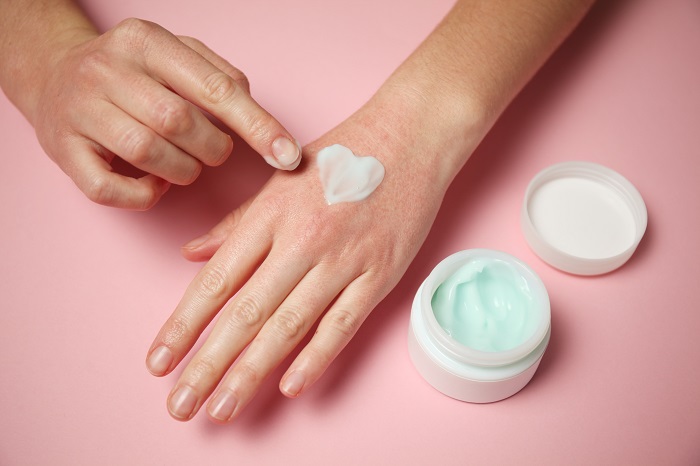Living with Eczema
2021-04-15

Eczema is the most common skin condition which can affect
people of all ages. We look at what you can do to manage it.
What is eczema?
Eczema is a long-lasting (chronic) condition that tends to
flare up periodically. It causes patches of your skin to be itchy and inflamed.
People who suffer from asthma, allergic rhinitis, or have relatives who have
atopic dermatitis, are at a higher risk of having the skin condition. Eczema is
not contagious.
What are some of the symptoms?

Symptoms of eczema include:
- Dry skin
- Inflamed red scaly rashes
- Itching, which may be severe, especially at night
- Raw and weepy broken skin from scratching
- Thickened, cracked skin
- Dark patches
What causes eczema?
The cause of eczema is not fully understood but is believed to be a combination of dysfunctional skin barrier and an overactive immune system which may respond aggressively when exposed to irritants. Eczema triggers include:
- Skin dryness
- Animal dander
- Any infections e.g. common colds, upper respiratory tract infections
- Insect bites
- Certain foods that may aggravate eczema in some patients
- Chemicals found in cleaners and detergents that dry out the skin
- Contact allergy e.g. nickel, hair dye
- Rough scratchy material, like wool
- Stress
- Sweating
- Synthetic fabrics
- Temperature changes, especially to heat
Living with eczema
Some children grow out of eczema. For other people it is a lifelong condition that has to be managed. Here are some steps you can take to better manage your eczema:
1. General measures
When bathing, use a mild soap or soap substitute that won't dry your skin, and afterwards apply a good moisturizer.
Keep your skin moisturized throughout the day. Apply moisturizer daily and regularly to repair the skin barrier.
Avoid taking very hot or very long showers as this can dry out your skin.
Manage your stress. Get regular exercise and set aside time to relax.
2. Control the itch and scratch
Antihistamines can help control the itch, examples include cetirizine, loratadine, levocetirizine, desloratadine, fexofenadine etc.
3. Treat skin inflammation with topical steroid creams
Different potency steroid creams can be used to treat eczema skin inflammation, depending on extent and area of rashes.
Your doctor can explain proper use of creams and monitor for side effects.
There are also non-steroid creams to treat skin inflammation, generally used for sensitive areas on the face and eyelids.
4. Treatment for flare-ups
If you have a bad flare, you may require intensive topical treatment (wet wraps) or a course of oral steroids.
Oral medications may be required to treat any skin infections or infected eczema.
5. Treatment for difficult-to-control eczema
If flare-ups are recurrent or eczema is difficult to control, you may need to escalate treatment.
Your doctor may prescribe medication to control the immune system (e.g. ciclosporin, azathioprine, new biologic injection dupilumab).
Phototherapy may be another option.
6. Allergy tests (prick, patch test)

Allergy tests may be required for certain types of eczema and to identify potential substances which your skin may be allergic to.
7. Maintenance treatment
- Avoid triggers
- Moisturize regularly
- Regular wash for active rashes
- Your doctor will explain to you how to use maintenance topical creams.
When do you see a doctor?
See a doctor if you:
- are so uncomfortable that the condition is affecting sleep and daily activities
- continue to experience symptoms despite trying home remedies
- have a fever or generally unwell together with the rash
- have persistent or worsening skin rashes, especially with wet weepy wounds developing on the skin
If you currently suffer from eczema, don't be disheartened. Seek help early and begin taking steps to manage the condition.
For more information or to make an appointment, please contact us at 400.819.6622.
Article reviewed by Dr. Zoe Wu, Dermatologist at ParkwayHealth

Copyright: Health Plus an online health and wellness web resource developed by Parkway Singapore





























